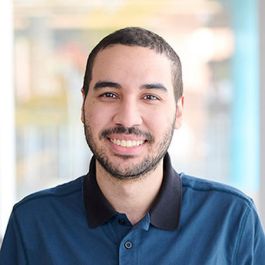What does the construction of the Brooklyn Bridge have to do with today’s product managers? The growth and knowledge that comes from facing unexpected challenges with a multifaceted skill set and adaptable approach.
In the heart of New York City lies a testament to human ingenuity and resilience: the Brooklyn Bridge. When construction began in 1869, it was destined to be the world’s first steel-wire suspension bridge — an ambitious project fraught with unforeseen challenges.
One such hurdle was the debilitating effects of caisson disease, which affected workers as they labored deep underwater to lay the bridge’s foundation. The mysterious ailment, later identified as decompression sickness, forced the project leaders to innovate rapidly in medical understanding and construction techniques, adapting their strategies in the face of adversity.
While today’s product managers exist in an entirely different world than 19th-century engineers, this feat of engineering captures a universal truth. Just as the bridge’s architects navigated unknown territories and adapted to new challenges, modern product managers can overcome technological trials through creativity, collaboration and adaptation.
Ultimately, the journey from conception to completion offers something that may not exist on the scale of the Brooklyn Bridge but is momentous in its own right: personal and professional growth.
For Kensho Technologies’ AI Product Manager Tarig Khairalla, each project is an opportunity to connect conceptual ideas with practical, impactful solutions. In tackling diverse and complex challenges, Khairalla has developed skills and insights that transcend the specifics of any single project.
He offers a roadmap for other product managers seeking growth in a rapidly changing industry by sharing the challenges, opportunities and resources that have shaped his career.
Kensho Technologies leverages S&P’s world-class data to create advanced AI and machine learning solutions that give their customers comprehensive, timely and actionable decision-making insights.
Reflecting on 2023, what was the most important professional experience you had?
In 2023, a pivotal experience unfolded as I collaborated on a strategic presentation focusing on Large Language Models (LLMs). This project tested my technical acumen and involved deep collaboration with research engineering, design and leadership stakeholders, crafting a compelling narrative tailored for the executive committee.
Gratification came from extensive discovery sessions which unearthed diverse LLM use cases across the entirety of S&P Global’s organization. These sessions crucially spanned applications for both external customers and internal employees. This fortified my tech understanding, honed my ability to translate complex concepts and enriched my strategic thinking.
Reflecting on 2023, this experience stands as a testament to innovation within the dynamic realm of AI. It also emphasizes the unique challenges and opportunities tied to presenting to an executive committee, reinforcing the impact of cutting-edge technologies on organizational challenges.
How did Kensho’s learning and development programs or other opportunities help you advance your career? And what role has your manager played in supporting your career growth?
In 2023, Kensho played a pivotal role in advancing my career through robust support and encouragement for professional development. One notable initiative was the opportunity to attend a product- and design-centric conference that immersed me in the experiences of fellow product managers and designers focused on AI-driven product development. This exposure proved invaluable, providing insights and perspectives that significantly contributed to my skill set.
Additionally, the company actively supported my career growth by facilitating participation in targeted learning programs. The managerial support was crucial as my manager not only approved these opportunities but also consistently encouraged me to take on challenging projects, contributing substantially to my professional growth. The collaborative and supportive environment fostered by Kensho allowed me to stay at the forefront of industry trends and continuously refine my expertise.
The combination of conference experiences, structured learning programs and challenging projects underscored the company’s commitment to investing in its employees’ development, ultimately propelling my career forward in the dynamic field of product management.
Stepping out of your comfort zone and tackling challenges head-on fosters personal development and opens doors to unforeseen possibilities.”
What’s one piece of advice you would offer to a product manager who’s looking to take the next step in their career in 2024?
Looking ahead to 2024, my advice to product managers aspiring to take the next career step encompasses three key principles: take risks, invest in continued education and be vigilant for new opportunities.
Firstly, embrace risk-taking as an essential element of career growth. Stepping out of your comfort zone and tackling challenges head-on fosters personal development and opens doors to unforeseen possibilities. Courage in decision-making is often a catalyst for innovation and professional advancement.
Secondly, prioritize ongoing education as a strategic investment. In the rapidly evolving landscape of product management, staying abreast of emerging trends, technologies and methodologies is imperative. This commitment to continuous learning ensures relevance and positions product managers to lead with informed, forward-thinking perspectives.
Lastly, maintain an active awareness of new opportunities. Actively seek out projects, collaborations or roles that align with personal aspirations and organizational objectives. Being attuned to the evolving needs of the industry and proactively pursuing avenues for growth can lead to career-defining moments.







